The White Plague
WINNING PROJECT, The Prague Quadrennial 2021 See winning Project
Written by Karl Capek
Costume Design by Meeka Postman
Scenic and Lighting Design by Joseph Johnson


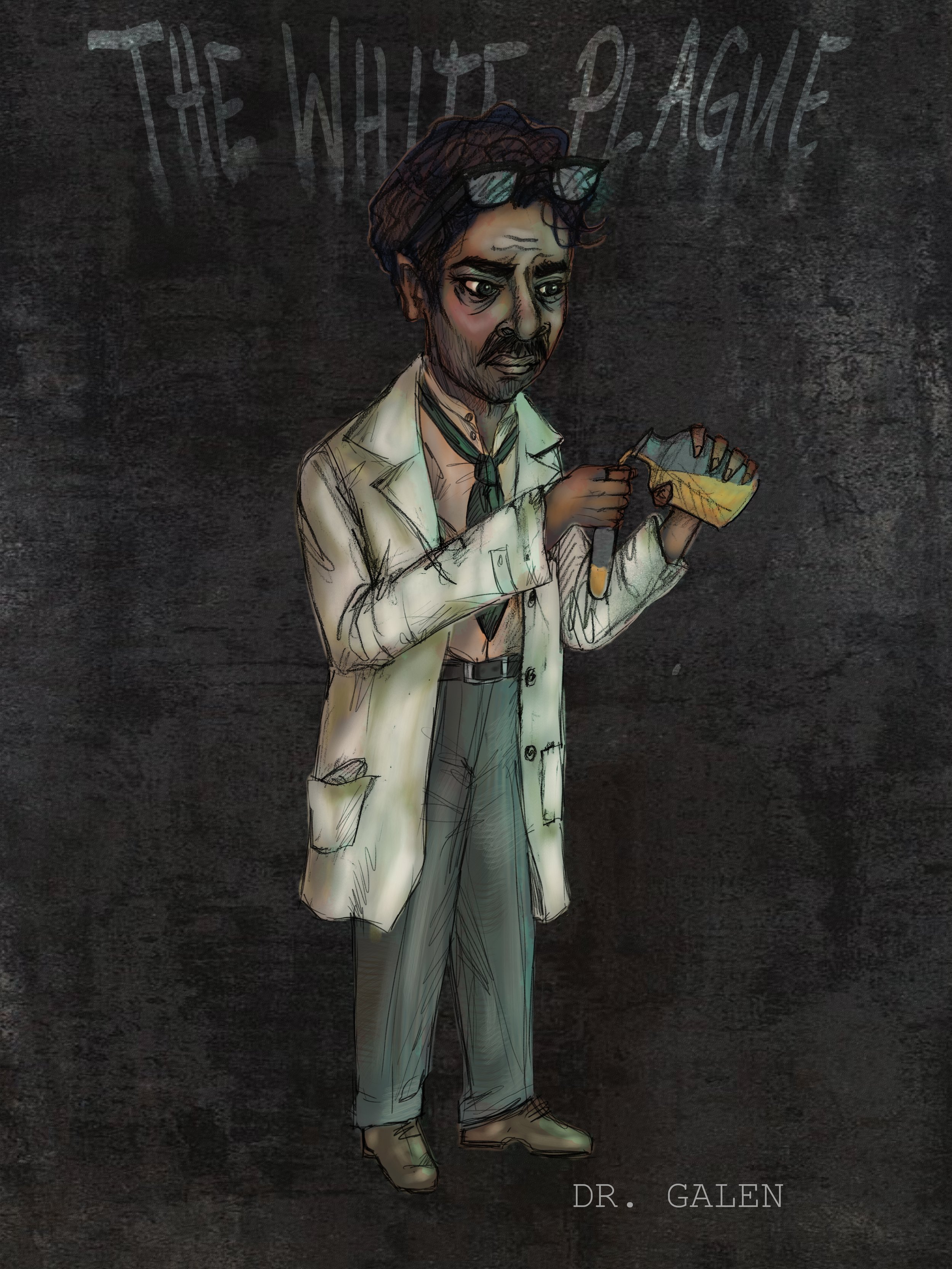
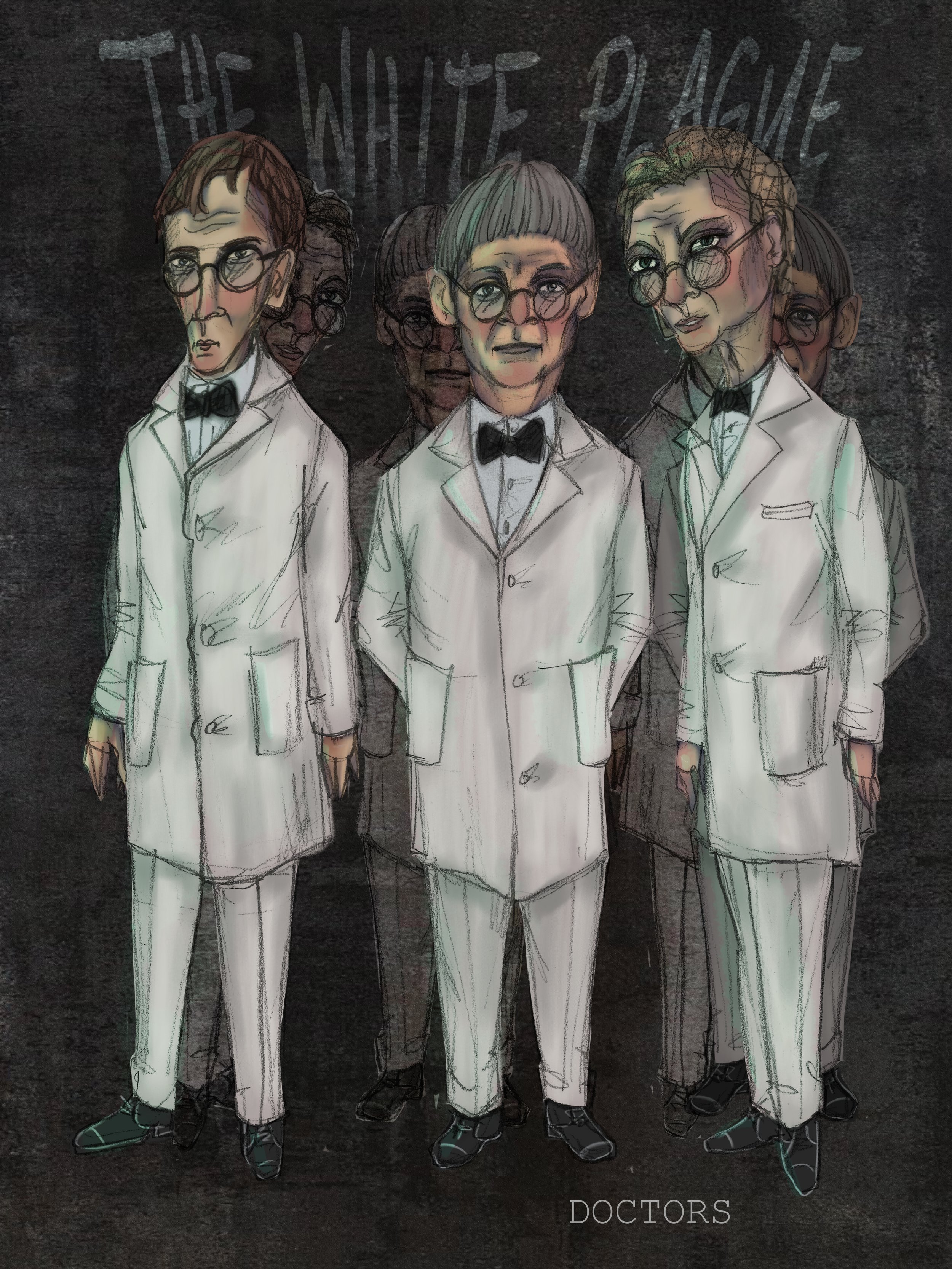



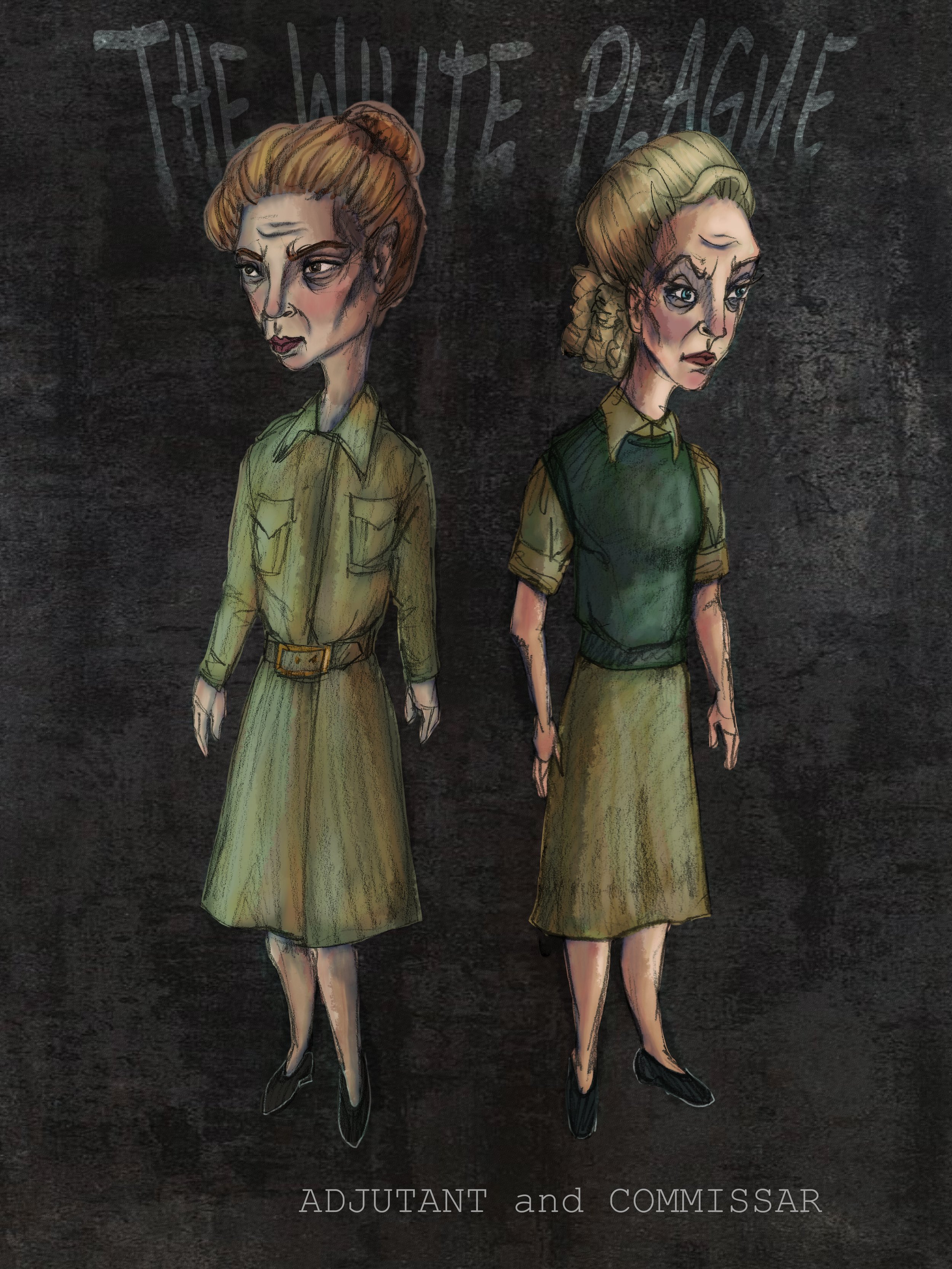
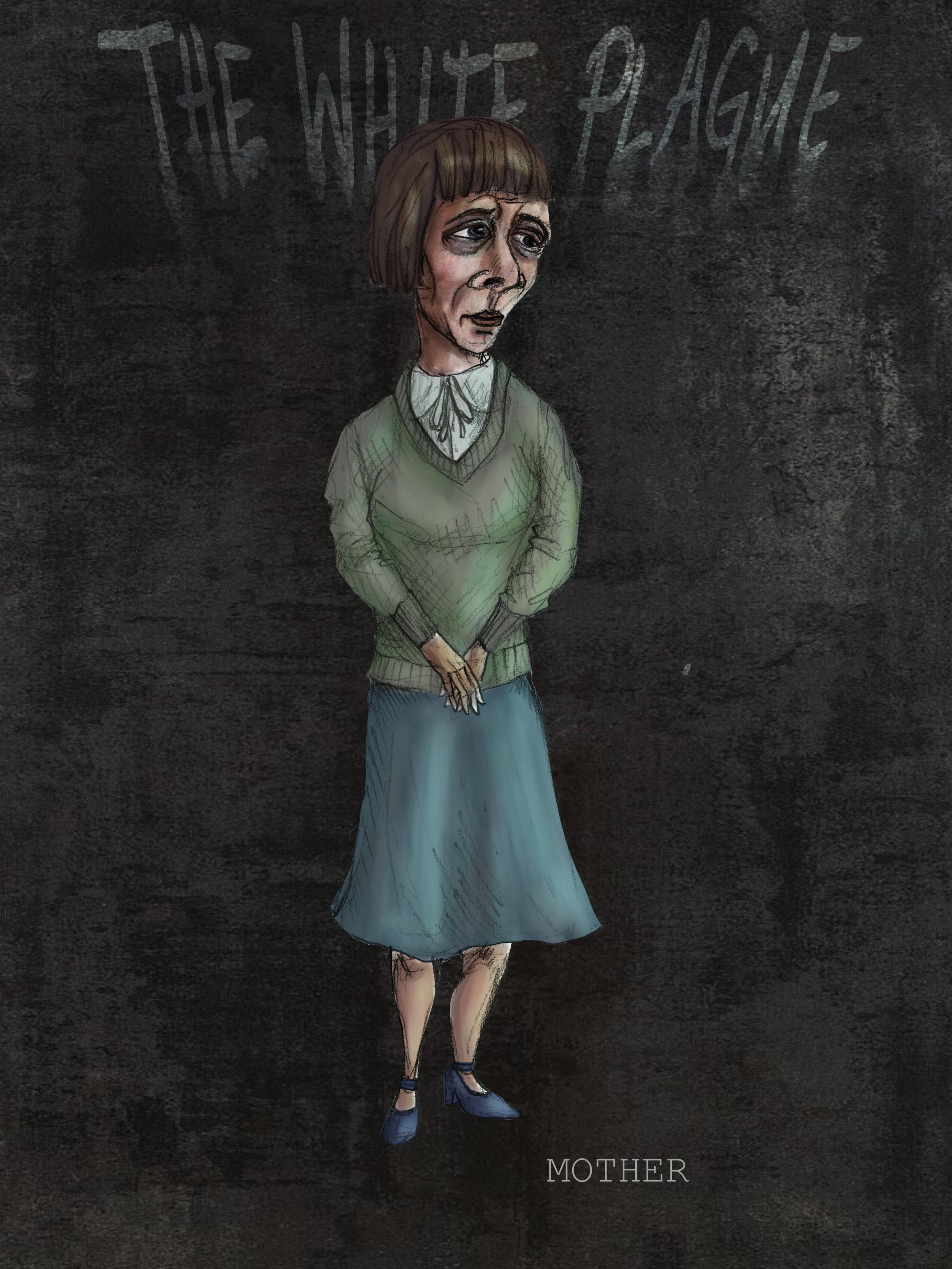
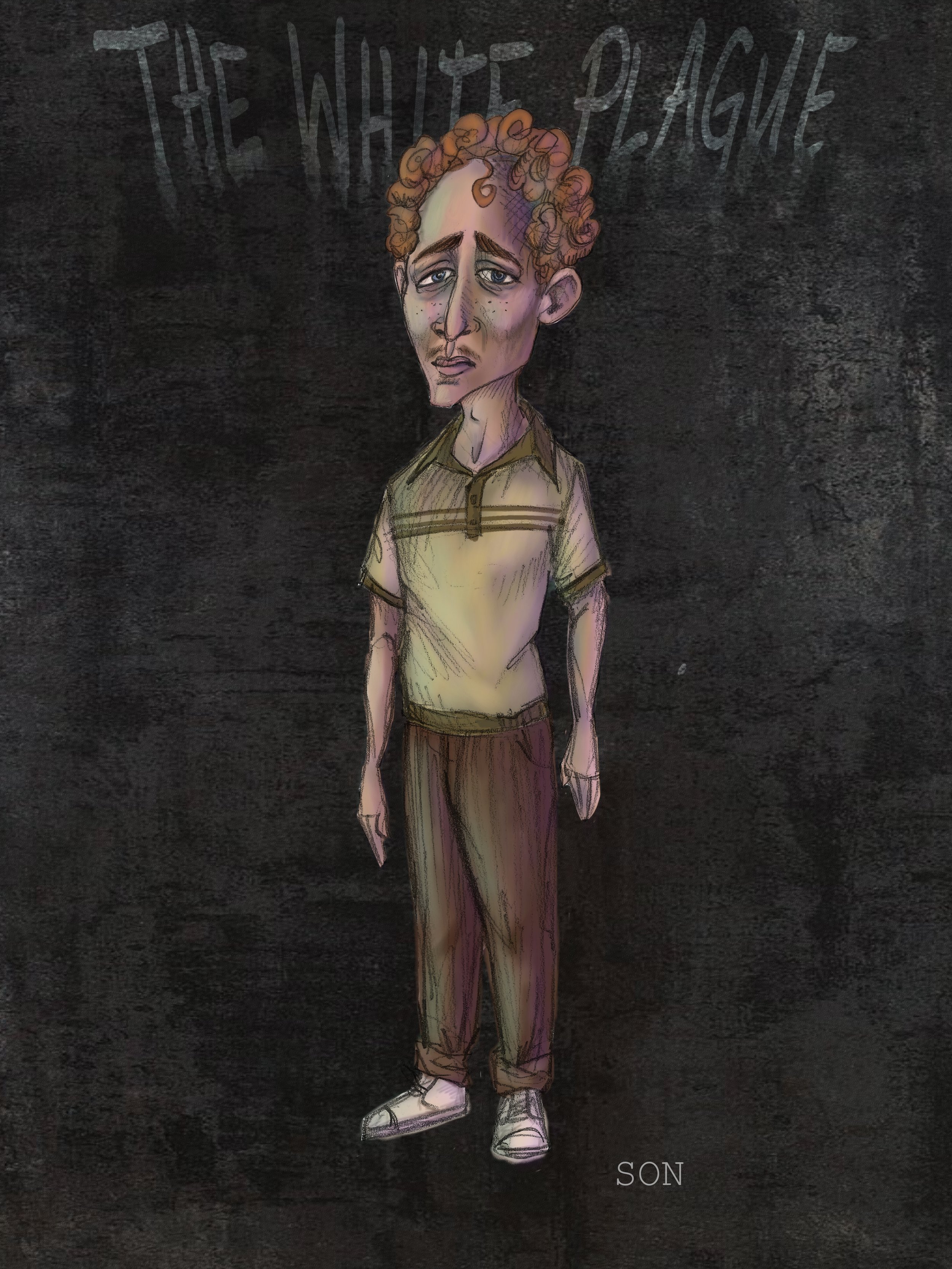


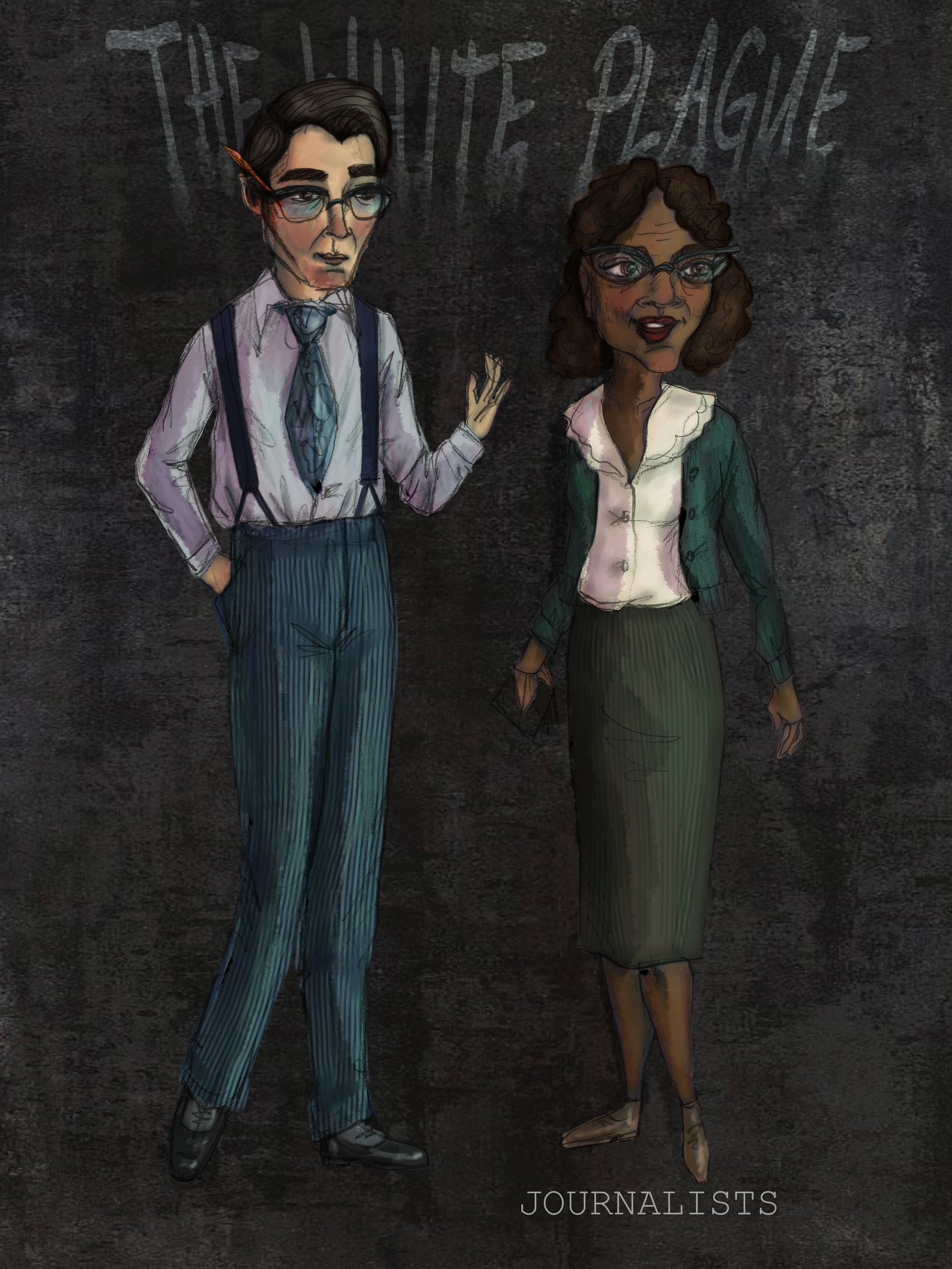





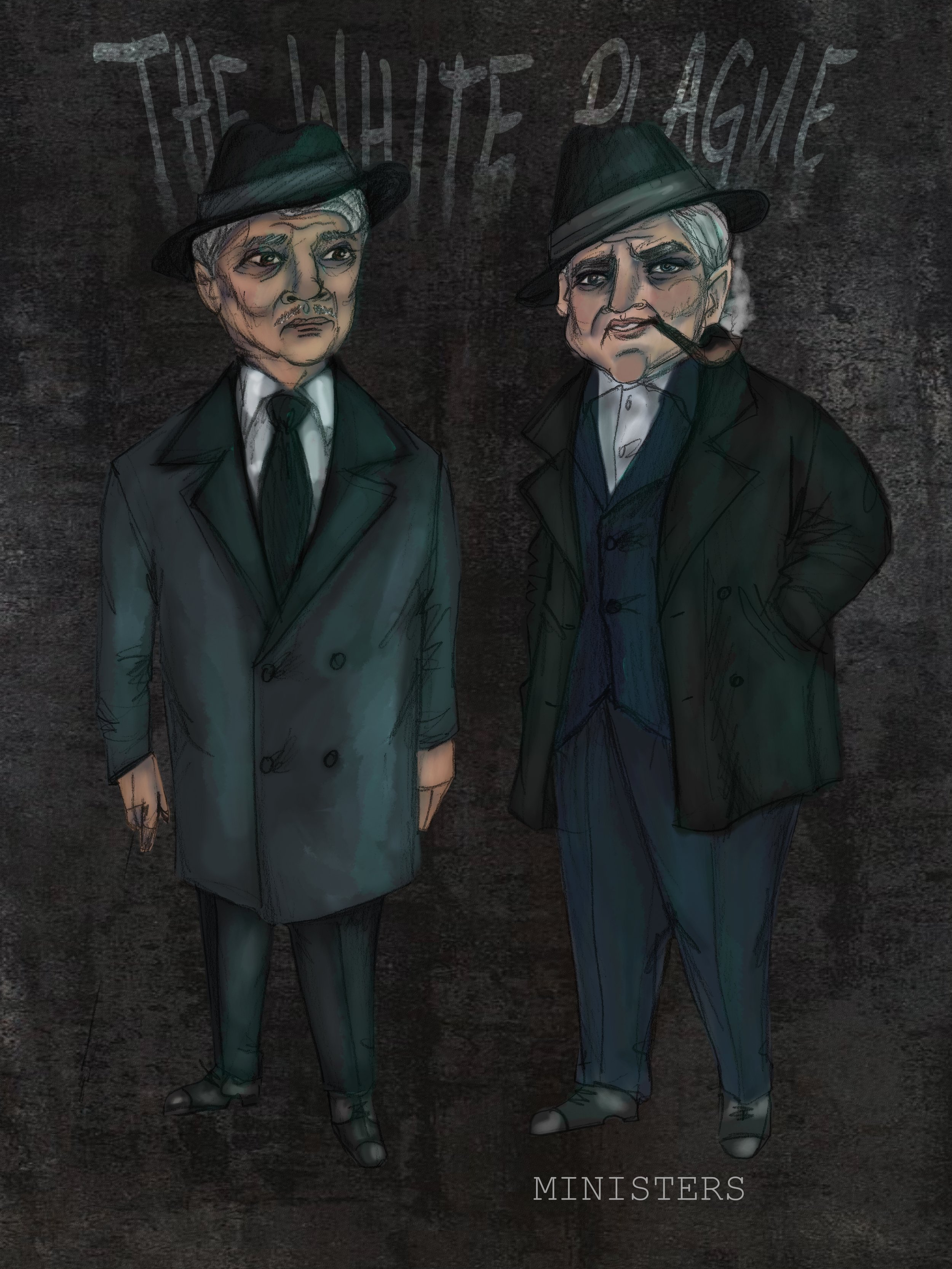

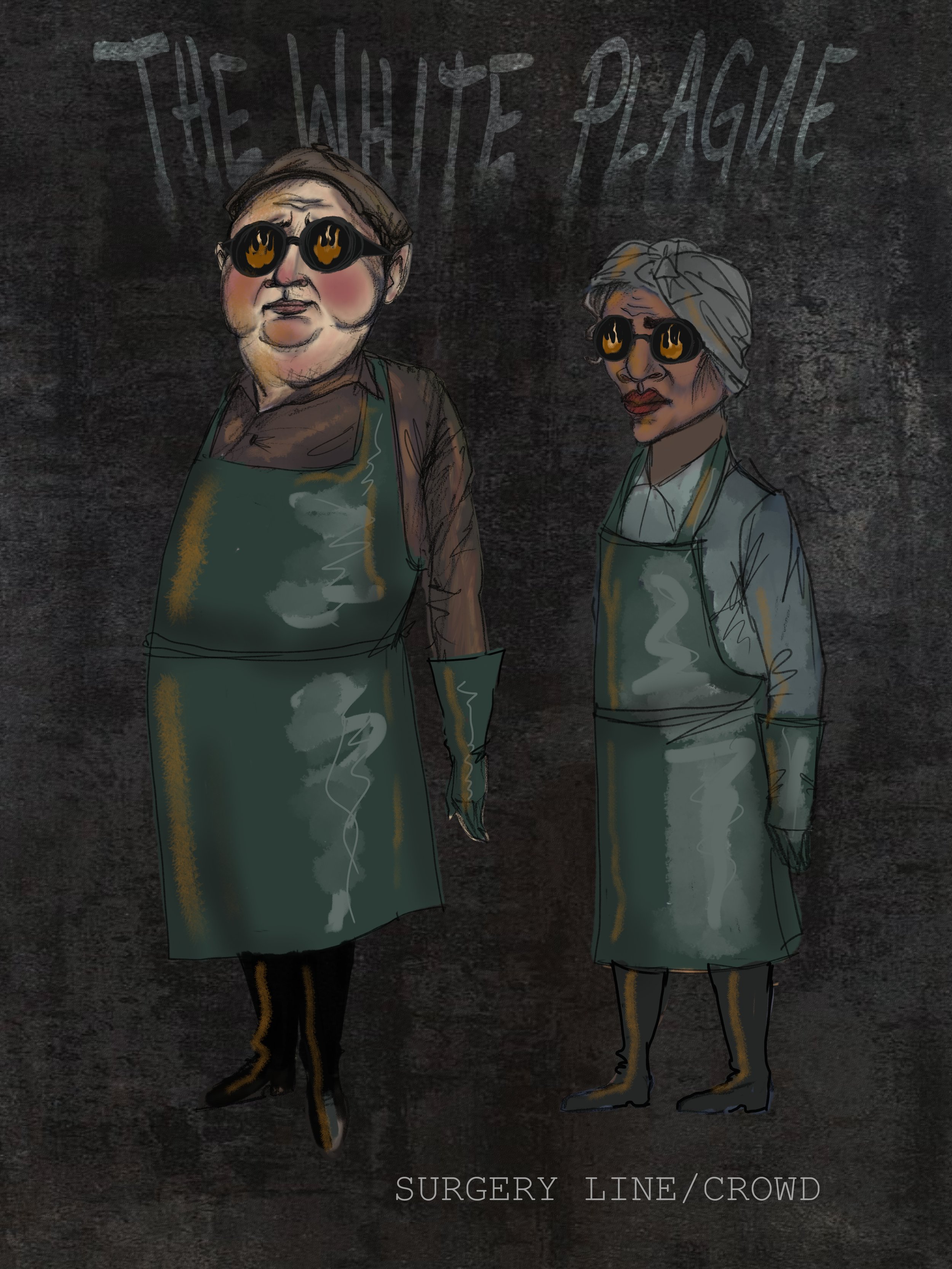



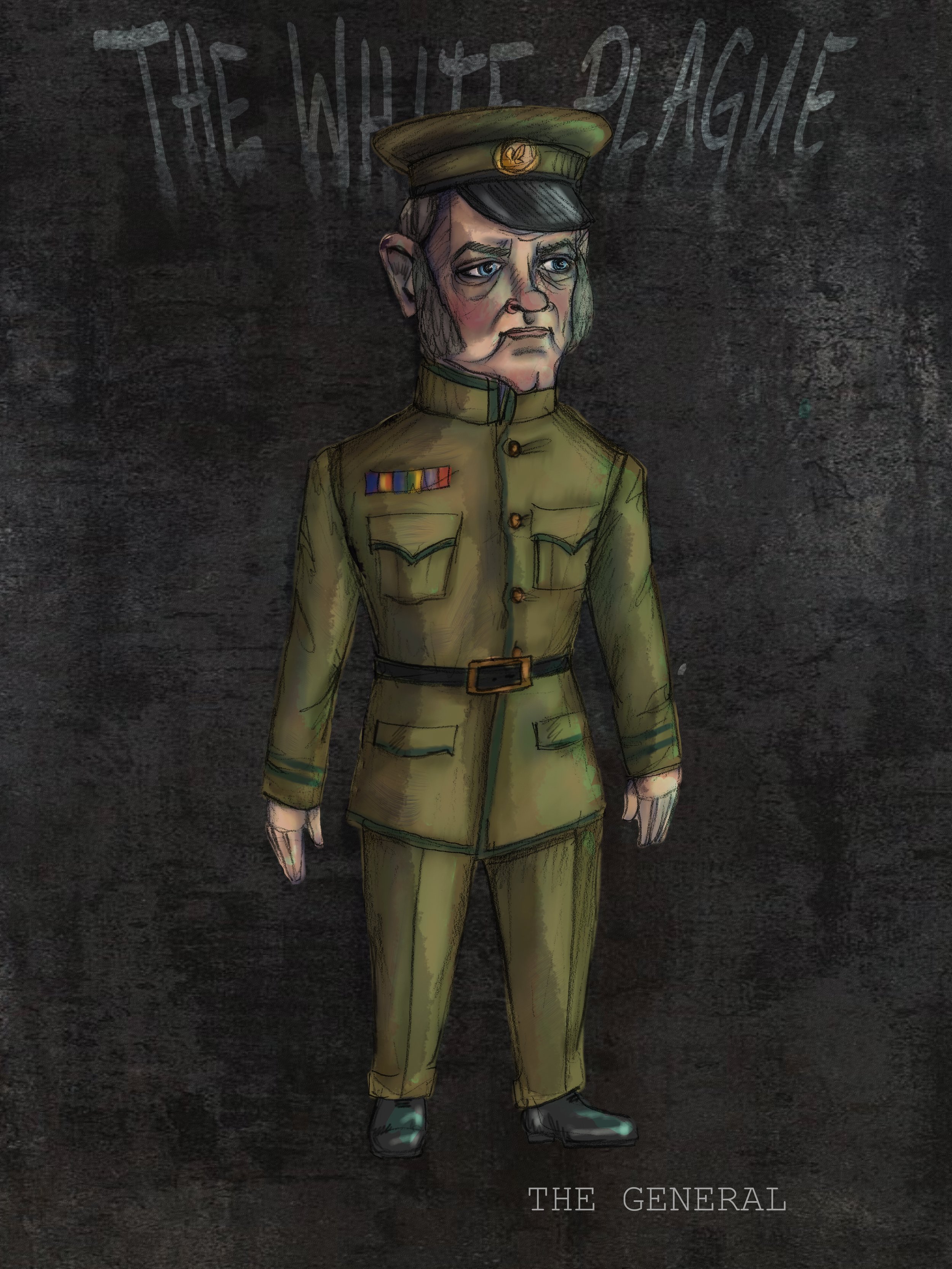
Design Statement
In its lust for conquest and war, an industrial-war profiteering regime centers its power on the manufacturing of arms. The Marshal is in power, his military is backed by a conveyor belt of weapons, but his greatest weapon is the people who follow him, an uncontrollable force that ultimately causes the Marshal’s demise and destroys a deadly virus’s only cure.
Everyone in this world is connected some way or another to the propaganda machine, functioning together for a particular task in pursuit of nationalism and power. Galen surrounds himself with the poor and disenfranchised workers who do not have access to the care they need. In contrast, the leaders of the hospital, military, and government all seem to move through the system as replaceable clones. This is a place where the people holding power are the type of people who have always had it. When Dr. Galen comes in and challenges the men in charge, he is met with disdain, an “other” who is necessary but nonconforming.
The conflict comes when there is an interference in the machine, a virus that is ravaging the world. To the powerful, it is just an interruption from the constant rhythm of manufacturing for war, dismissed as a distraction from the government’s main objective. Galen disrupts the machine by forcing a choice: peace or death?
Instead of touch, which is how a person contracts the deadly disease, the people become infected with the ideological virus through a propaganda lens. Surveillance and control using monitors in the factory are used, creating different angles and perspectives while also showing that the repetition of those screens only serve a greater whole, just like the bodies dying of the virus and from war. In the end, the darkened lens through which the crowd have been taught to see, shields them from the bright light of the burning factory. When the time comes to halt production, it is too late and, in the end, the machine wins.
—MP & JJ